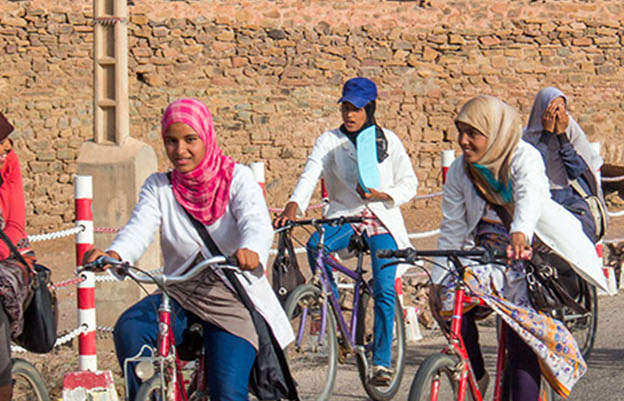Two months ago, I did not know any Arabic other than the well-known expressions inshallah (‘if God is willing) and yallah (‘let’s go’).
In the weeks before the minor, I distinctly remember talking to my parents about how impossible and alien the basic vocabulary I had to study seemed to me: kursi for chair, zenqa for street, shkara for backpack. I felt like I didn’t have any method to memorize the words and grasp their meaning.
Since learning Darija is such an integral part of the minor at NIMAR, we undergo an intense crash-course in a language most of us are unfamiliar with. We started out by simply trying to produce the sounds that characterize Arabic. You’ve got the ‘ayn’, a sound made in the back of your throat which, to the untrained ear, might sound a bit like a frog’s croak. Then there’s the ‘qaf’, which I like to categorize as the lovechild of a ‘k’ and the Dutch ‘ch’.
Having mastered the sounds, or at least given it our all, we moved on to basic sentences. As the weeks passed, I noticed that I got more and more comfortable with the structure of this language. Although I usually stayed within the comfortable confounds of French when ordering at a café, I was excited to realize that I was able to pick up some words of Darija when walking around in Rabat. The past few weeks, we’ve focused on studying Arabic verbs, which seem to encompass so many different words into one singular verb. For example, the word makansherbuhsh is the equivalent of ‘we don’t drink that’. This has proven to be pretty difficult to conjure up on the spot. Two steps forward, one step backwards…
Although I had no background in Darija, I was sometimes able to piece together the meaning of a word through my knowledge of other languages. As a result of colonial history, many words in Darija are derived from either French or Spanish. If you know the Spanish word for ‘week’ (semana) the Darija word (simana) will be pleasantly recognizable. The same goes for French. Why use the standard Arabic word for restaurant ‘mat3im’, when you could just go for ‘restaurant’? A nice shortcut amidst all the new vocabulary we have had to study. Having a grandfather with a Jewish background, I grew up learning some jiddish expressions. To my surprise, I’ve found these helpful when studying Darija. I knew for example that the Dutch word jatten (to steal) came from the Hebrew word for hand, but it turns the Arabic word for hand is exactly the same.
Although Arabic is unlike any other language I’ve ever studied, the language is starting to make more and more sense. Now, after two months of intensive language classes and a significant amount of homework, we’re actually able to string together sentences. This weekend was the first time I ordered my breakfast entirely in Darija and actually understood the waiter’s reply, which felt like quite the victory.
Inshallah, I will continue on my Arabic journey!



